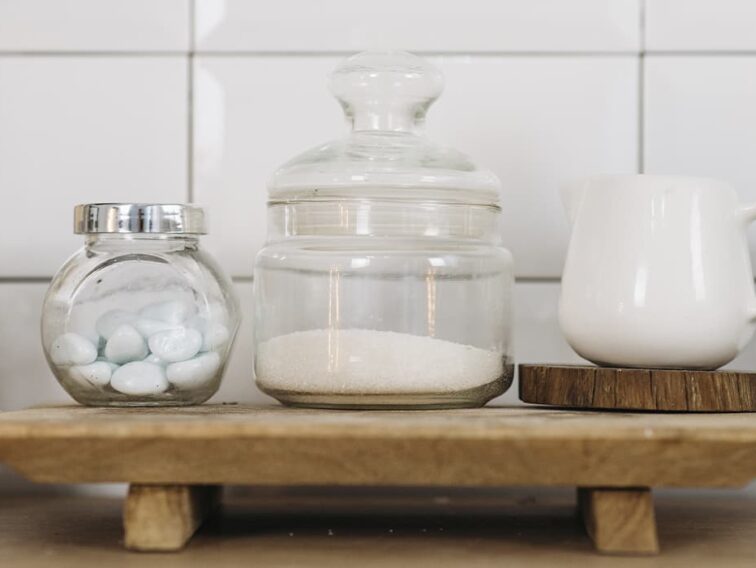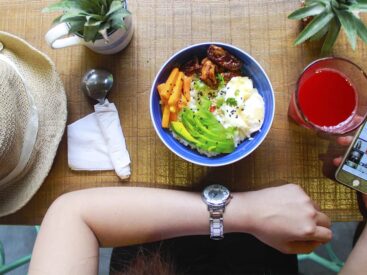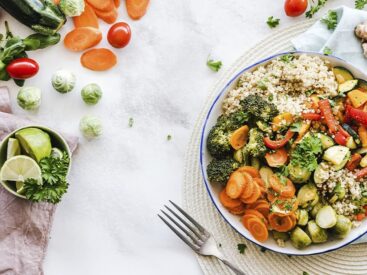Many people consider giving up sugar as a priority in their quest to lose weight. And then the question arises: to “hold on” to willpower until “the receptors are clean,” or to find a substitute for sugar. And this is where the average person has a lot of questions. And, okay, if the difficulty consisted only in finding something more or less similar to sugar in taste. But no, here you have cancer scare stories and hysteria about insulin.
In the first place, sugar substitutes are divided into:
- natural – substances with a sweet taste, most often having a fairly high caloric value and affecting the insulin response.
- synthetic (sweeteners) – substances with zero calories, which are not absorbed by the human body.
Those that do not contain calories are often used not only by people with carbohydrate metabolism disorders, but also those who want to lose weight. Sweeteners can be found in soft drinks, pp-desserts, gum and toothpaste.
Natural sweeteners include:
- fructose, honey, syrups (topinambour, rice, maple, grape, agave, etc.);
- sugar alcohols (polyols): erythritol (erythritol), xylitol (xylite), sorbitol (sorbitol);
- stevia.
Artificial: saccharin, cyclamate, sucralose, aspartame, acesulfame potassium, neotame, and advantam.
WHAT ARE THE ADVANTAGES OF SWEETENERS?
- Reducing the energy value of food.
By replacing sugar with sweeteners, we achieve a reduction in the caloric value of the diet.
But there is a behavioral issue here. It happens that people unconsciously start to increase portions and eat more when they know that the product is sugar-free. They forget that calories and portion control are paramount when it comes to eating.
- Do not affect blood glucose levels and do not cause insulin secretion.
Which means they can be used in the diet of people with diabetes, including type 1 diabetes.
SAFETY
There are a lot of complaints about synthetic sweeteners. If you google it, turn on TV, or open a women’s sub-public forum, you’ll read all about it and go gray… Saccharin causes bladder cancer. Aspartame causes diabetes, cancer, migraines. But on closer inspection, all the studies look like well concocted fabrications.
It’s important to understand that all sweeteners undergo stringent safety evaluations by the European Food Safety Authority (EFSA) before they can be used in food and beverages. They are also approved for safety by: the U.S. Food and Drug Administration (FDA), the Food Safety Authority of Australia and New Zealand (FSANZ) and other authoritative organizations.
They have been in use for quite some time and the only harm I note in my practice has to do with the fact that the constant consumption of very sweet foods and drinks changes a person’s eating behavior. People stop liking the taste of plain water and food, and that in itself is bad. In any case, the greater the percentage of pure water and natural-flavored foods in the diet, the better.
WHAT ABOUT INSULIN?
Separately, we should talk about the effects of sweeteners on glycemic levels, insulin, and carbohydrate metabolism in general.
Insulin is an important hormone that is secreted by the pancreas when eating any food, including protein and fatty foods. So eliminating carbohydrates from the diet in order to lower insulin levels is not a good idea. As for artificial sweeteners, if they do not contain carbohydrates, they do not raise blood sugar levels. Otherwise, why would they be recommended to people with diabetes?
There is some, controversial, evidence that some substances (sucralose and saccharin) can potentially raise insulin levels in people. But even if they do, there’s no danger of that happening. It is a normal physiological process – the body’s response to an external stimulus, which has no effect on weight loss or the development of carbohydrate metabolism disorders. Insulin is not to be feared in principle. It does not block fat burning and is not to blame for a person gaining excess fat.
IMPORTANT TO REMEMBER that polyols can affect blood glucose levels because they are not zero-calorie. Therefore, diabetics should consult their specialist.
As for people who are healthy, including thin people, the effect on glucose levels will be minimal. Sugar alcohols are not completely absorbed by the body. They pass through the small intestine and are fermented by bacteria in the colon. They are also found to be safe, but it is recommended that their amount in the diet be rationed. Excessive amounts of polyols can lead to bloating and diarrhea.
SUGAR DOPPELGANGERS
These are sugar substitutes that have no advantage over sugar. However, they are often used by manufacturers to replace sugar in their products. Sugar-free” labels on many packages bribe gullible customers. But they often hide the same sugars behind them.
It’s the same sugar:
- maltodextrin, maltose, molasses, treacle, malt;
- dextrose, dextran, diastase;
- glucose, glucose syrup;
- corn syrup;
- fructose, fructose syrup;
- lactose, galactose;
- sucrose, powdered sugar, granulated sugar, beet sugar;
- turbinado; cane sugar; brown sugar;
- coconut sugar;
- grape sugar;
- date syrup; agave syrup; maple syrup; topinambour syrup; carob syrup;
- honey;
- concentrated fruit juice.
When buying products that contain any of the above, don’t be fooled. And keep in mind that they often mask the sugar in prepared foods, including sauces, sausages, breads, etc.
FROCKTOSA
I will tell about it separately. It is probably the most common and widely used sugar substitute in diabetic nutrition. And here’s the paradoxical thing. Despite the fact that fructose is absorbed independently of insulin and has a lower glycemic index in comparison with glucose and sugar, there is a BUT.
Two, to be exact.
First, fructose is almost as good in calories as sugar, which means that it also contributes to weight gain.
Secondly, fructose can be metabolized in the liver either into glycogen or into free fatty acids.
Hence the risk of developing fatty hepatosis, elevated triglyceride and “bad” cholesterol levels in the blood, and the risk of developing insulin resistance. Essentially, excess fructose suppresses the process of oxidation of fats inside cells for energy, i.e. it is obvious that fructose is not a good substitute for sugar. It is important to note that this does not apply to fruits and berries, where fructose is naturally occurring and bound by dietary fiber. Yes, fruit can make you gain weight, just like any other food. But it is due to excess caloric intake, not fructose.
CONCLUSION:
The principle that should guide everyone is a complete balanced diet without counting calories. The body should get all the nutrients from the food. If you do not abuse sweets, the receptors remain sensitive to the different tastes of natural products. If you can’t give up sweets completely, replace them with desserts with low-calorie sweeteners.
If the thought of sweets becomes obsessive, however, it is worth thinking about what is behind it. Most often the cause is an unbalanced diet or food addiction (psycho-emotional nature). If this is the case, you can always come to me for individual counseling to find the root cause.



